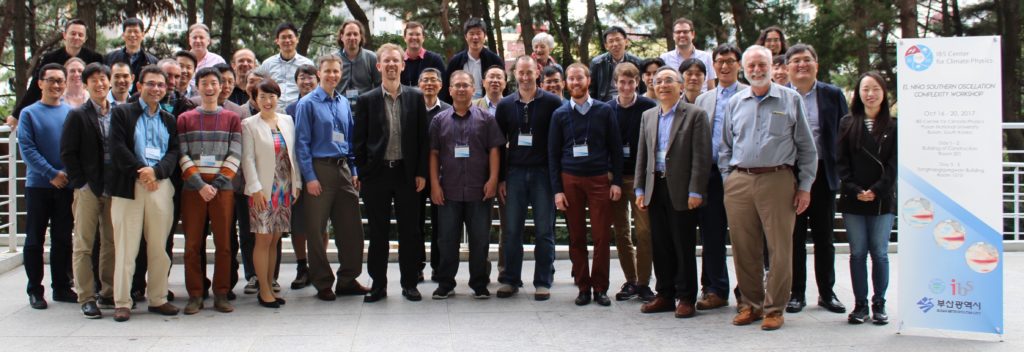The IBS Center for Climate Physics (ICCP) hosted an ENSO Complexity Workshop from October 16th to the 20th, which was attended by 42 researchers from ten different countries. The workshop was special not only because it brought together many of the world’s leading experts on the El Niño – Southern Oscillation, but also because it had a unique format. In addition to sharing and discussing the forefront of ENSO research, the participants came together with the mission of writing a community review paper.

The topic of the presentations and the review paper was ENSO complexity, which refers to the fact that no two ENSO events develop in exactly the same way. In particular, the warm El Niño events seem to have two different types, characterized by whether the ocean warms more in the central Pacific or the eastern Pacific. The difference is important because the warm ocean waters heat the atmosphere in different locations, which leads to different global impacts on temperature and precipitation. Complexity also includes observable changes in this climate phenomenon over the last several thousand years, and the changes ENSO may undergo in the future.
The first two days of the workshop were dedicated to scientific presentations, with plenary speakers providing an overview of ENSO complexity and other scientists presenting their latest results. For the remainder of the week, the participants split into six writing teams, each responsible for one chapter of the review paper. At the end of the day, everyone gathered to discuss changes to the manuscript, before heading out for a lively group dinner.
The workshop was organized by Axel Timmermann (Director of ICCP), June-Yi Lee (ICCP and Pusan National University), Soon-Il An (Yonsei University), Jeong-Song Kug (Pohang University of Science and Technology) Sang-Wook Yeh (Hanyang University), Yoo-Geun Ham (Chonnam National University), and Andrew Wittenberg (NOAA Geophysical Fluid Dynamics Laboratory). The workshop was funded by the Institute for Basic Science, Busan Metropolitan City, Yonsei University, and Pohang University of Science and Technology.